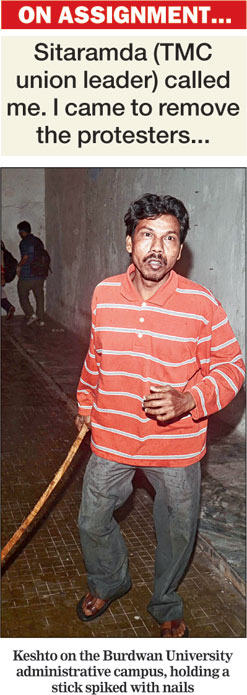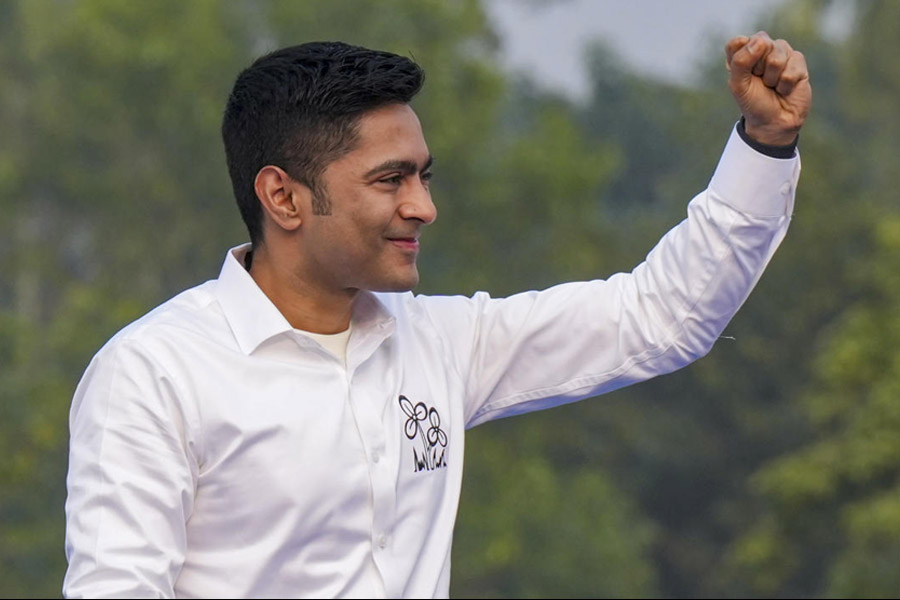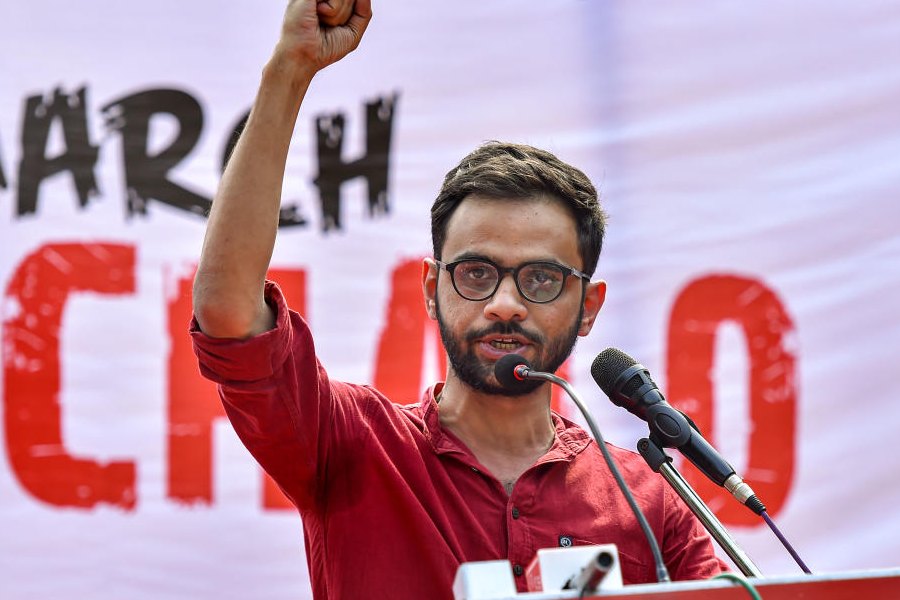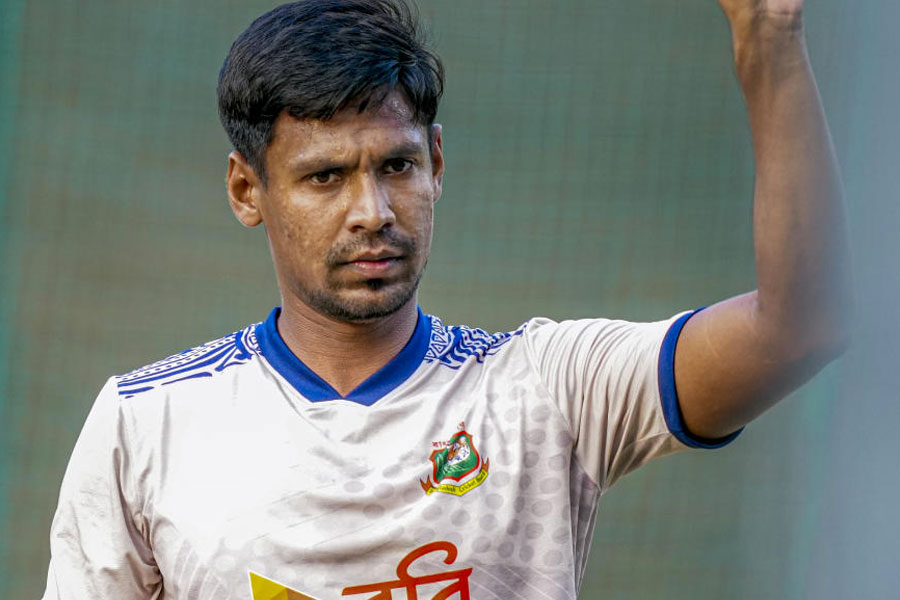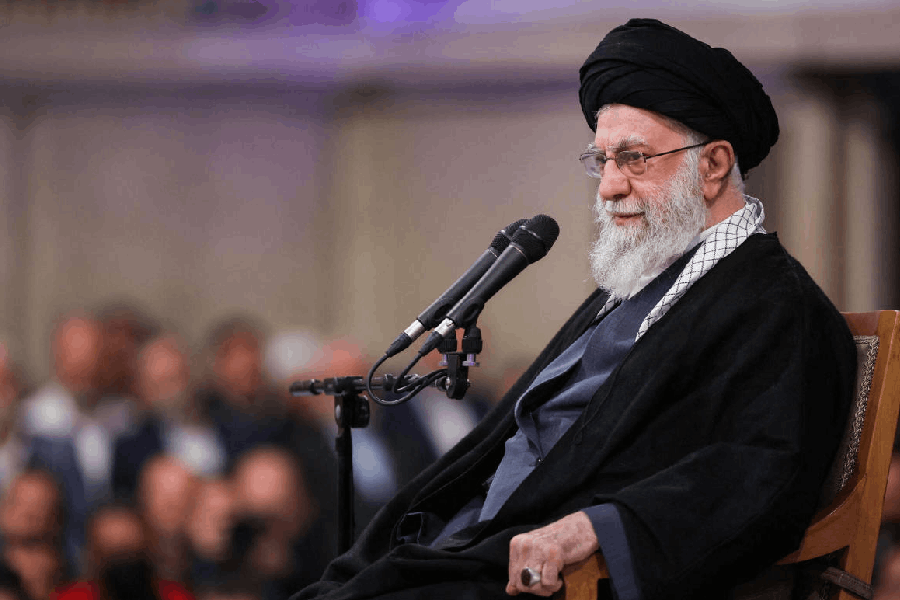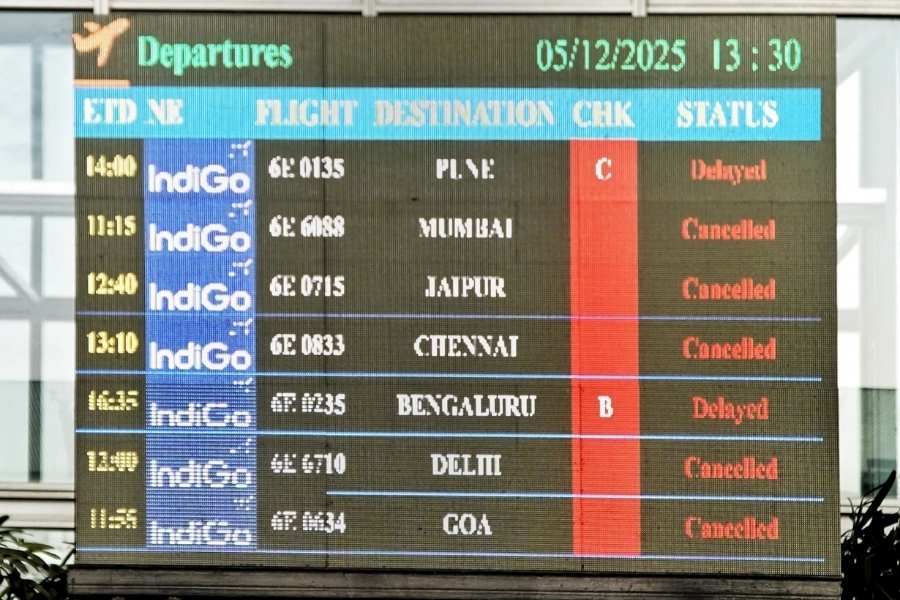 |
You need not be in your 20s, or even 30s, size zero and free as a bird to find love. The new woman is ready to step out of a bad marriage and tie the knot again, often with children in tow. She is not apologising. And technology and media are doing their bit, not to mention a few good men.
Debashree Dutta (name changed), a professional in the hospitality industry, was 48 when she married a second time. Two years later, she finds her second marriage far more fulfilling.
Homemaker Tulika Mitra (name changed), 41, walked out of her first marriage after six years of compromise. When a friend and colleague who had stood by her throughout this difficult period proposed, Tulika decided to accept the offer. Seven years into her second marriage, Tulika is now more confident and a proud mother of a four-year-old.
Psychologists say the Indian woman’s pschye is changing dramatically. She is increasingly eager to give marriage a second chance, even after a bitter first experience. And she is more than ready to take the help of friends, family and matrimonial websites to find a more satisfying relationship.
Statistics provided by Shaadi.com, a popular matrimonial website, show a growth of more than 25 per cent in profiles looking to remarry over the last three years in Calcutta, compared with the national figure of around 24 per cent.
“Sharing problems with friends, being made aware of marital rape and abuse through media and seeing people around them have made women bolder to walk out of an unhappy marriage. Research also proves that children are better off with one happy parent than with two quarrelling ones,” said consultant psychologist Paromita Mitra Bhaumik, adding that at least 50 per cent of such marriages now have the support of friends and family.
A recent commercial of a jewellery brand is a striking example of changing social norms. The ad went viral on social networking sites because of its hatke subject — second marriage of a woman with a happy child in tow. TV soaps aren’t far behind with a string of serials in Bengali — Sokhi and Ishti Kutum — as well as Hindi — Balika Vadhu, Punar Vivah and Saraswatichandra — showing women remarry.
Actress Bidipta Chakraborty feels economic independence is key to a woman’s decision to walk out of an unhappy marriage. When Bidipta decided to leave her first husband, she had a five-year-old daughter to take care of. What helped was the support of her friend and now husband, filmmaker Birsa Dasgupta. “I started living with Birsa soon after I walked out of my first marriage. He was just 25 then, but treated my daughter like his own. That made the transition easier,” smiled the actress, who has found a new family in her in-laws.
“I come across many friends languishing in a stale marriage who cannot walk out. Sometimes the child holds them back. I had a supportive family and Birsa’s parents (television personalities Chaitali and Raja Dasgupta) too were keen to accept both of us. But the most important thing for a woman is her financial security. Without that, she cannot walk out, however bad her marriage is,” said Bidipta, now five years into her second marriage and with a second daughter.
Beauty parlour owner Priyanka Khurana (name changed), 36, severed a marriage of 14 years for the sake of her kids. “I could not let my daughter grow up thinking it was all right for a woman to be abused and my son to learn how to abuse,” she said. Priyanka married a former colleague in 2008 and finally found peace and stability.
Baladev Chatterjee, a marriage registrar, finds 10 out of every 100 marriages he conducts to be a remarriage. “I have at times seen parents and relatives hesitant but the couples are mostly looking ahead at a brighter and positive future,” he said.
Matrimonial sites say the highest number of remarriages occur between 28 and 40 years. Of the 801 women from Calcutta looking for a second husband on Jeevansathi.com at present, around 53 are aged 21-25 years, 468 between 25 and 35 years, 341 profiles belong to the 35-50 age group and 10 are above 55 years.
Such is the trend that SecondShaadi.com, a Gurgaon-based website, floated seven years ago, caters only to candidates looking to marry a second time. “Second marriage had been a taboo even a few years ago. We wanted to see more women overcoming the mental block and giving marriage a second chance,” said Megha Misra, the assistant manager of the portal, which receives around 300 applications a month from all over India as well as from NRIs. Of these, 40 per cent are women applicants.
Once bitten, twice shy. Economic stability and compatibility are what most women look for while remarrying. “They are more cautious the second time, checking and re-checking backgrounds of prospective grooms. They want to know why a prospective spouse’s first marriage had failed,” Megha said.
But technology has also been a boon and many admit they find it more comfortable and convenient to “look online” for a partner.
“Research confirms our belief that online matrimonials are steadily gaining wider acceptance with the modern woman. This can be largely attributed to the fact that women today are independent, liberal and tech-savvy,” said Gourav Rakshit, the COO of Shaadi.com.
When media professional Rakhi Mitra (name changed), 29, went into depression after her marriage with her first love failed, her mother decided to post Rakhi’s profile on a matrimonial website.
“The websites are user-friendly and one can also restrict personal information. They are safe if one is selective and cautious. Not only my own marriage, I have seen a lot of my close relatives and friends getting married with the help of websites and fortunately I have only seen positive outcomes. Apart from my husband, I had met three other guys, all of who were nice people. But before meeting anybody, I spoke to them over phone for a long time,” said Rakhi.
Maya Sen (name changed) also exchanged emails before deciding to go ahead. “I knew that many men just wanted to hook up for fun. I decided not to meet my second husband immediately, but to take it slow. After mailing each other several times and getting to know one another, we finally decided to meet. But by then I was totally comfortable with him,” shared the 42-year-old schoolteacher.
More than 70 per cent of candidates looking for a second spouse on Shaadi.com don’t go by looks and say “body type doesn’t matter”. More than 75 per cent of the profiles don’t mind if the spouse has children from an earlier marriage.
“There are so many reconstituted families around us these days. Recently I counselled a client whose wife had left him. He was living with a son. He married a single mom with a daughter. Often these marriages are not based on glowing romantic ideas but rather on practicality and the need for companionship. Reconstituted families function very well,” psychologist Bhaumik said.
Debashree, however, remarried at the cost of being estranged from her children, who are still not ready to accept the new man in their mother’s life. The 50-year-old married her 67-year-old husband in 2012, four years after she became a widow. “I was married for 21 years and have two sons, one doing his MSc and the other in Class XII. After the death of my first husband I felt lonely and depressed, especially during the weekends. I met my current husband on a matrimonial site. My sons, however, are still unhappy with my decision. The elder one does not speak to me. For the younger one, it is a matter of convenience since I still pay for their education,” she said.
Others have faced rude comments but have not let it make a difference. Ending her marriage, which had been “shaky from the start”, also led to estrangement from some family and friends for jewellery designer Debarpita Sen. “I had married my boyfriend of nine years. Post marriage, there was a lot of insecurity, verbal accusations as also physical abuse. I clung on, hoping things would improve, but in vain. The last straw came when I was accused of having an affair. The saddest part was that my husband did not believe in me. I could not take it anymore,” said the 44-year-old. Debarpita took her time and remarried after seven years in 2006.
Breaking up is never easy and many like Rakhi retreat into a shell. What they need at this time is the support of family. “I started eating a lot and went into depression. I even avoided my friends’ weddings and became a workaholic,” remembers Rakhi. But her mother was determined to help her “move on in life”. “I was optimistic that I would be able to find her the right partner. I didn’t care about anything else but my daughter’s happiness,” said the mother.
Maya had decided to sort out her priorities before marrying a second time. “I listed the things I wanted from my husband, if I did marry again. I was open to remarriage but did not want a first-timer. I also wanted both of us to have a child, or adopt one. That was an important criterion.” She realised, after a date, that widowers often came with baggage. Ultimately she started corresponding with a man, divorced like her, whom she met through a matrimonial website.
Psychologists, though, believe that a once-married woman need not only look out for men in the same shoes. In fact, a marriage with a first-timer could often work better. “Women are insecure by nature and marriage with a first- timer is often happier. Baggages often creep in when a man has an ex-wife or a child,” Bhaumik said.
Take Tulika and husband Amitava Mitra, for whom it is his first marriage. “We have been friends for so long that her past never got in the way of our relationship. There was always complete transparency. It was not easy convincing my parents but ultimately everything worked out well and I am glad I married her,” said Amitava, happy that Tulika had the guts to walk out.
Birsa was well aware of “what we were getting into” when he and Bidipta started living together before tying the knot. “Our daughter, from Bidipta’s first marriage, Meghla was five at that time. We slowly built a beautiful relationship. She would call her father Baba and me Babui. I let her do what she was comfortable with. My parents also accepted her so whole-heartedly that Meghla, along with Bidipta, soon became an integral part of my family. The transition was quite smooth and happy,” said the filmmaker.
Meghla, a Class IX student, claims she has all the fun moments with her “Babui”. “I don’t remember much (of Bidipta’s first marriage). I just remember the love and acceptance I got in my new home. I am also very close to my current grandparents. They are my own,” she said.
Priyanka’s children (daughter 18 and son 17) even proposed to her current husband on her behalf. “He was a former colleague and I had approached him for a job. That’s how we reconnected and became close friends,” said Priyanka, who has decided not to have any more children. “I am living my 20s now. I have evolved as a human being.”
Maya’s second marriage not only brought her happiness but also a daughter, her first. “I plan to tell my daughter everything when she grows up so that she does not repeat her parents’ mistakes,” she said.
Motherhood, stability or space for each other’s independence — second marriages seem to be working happily ever after.

